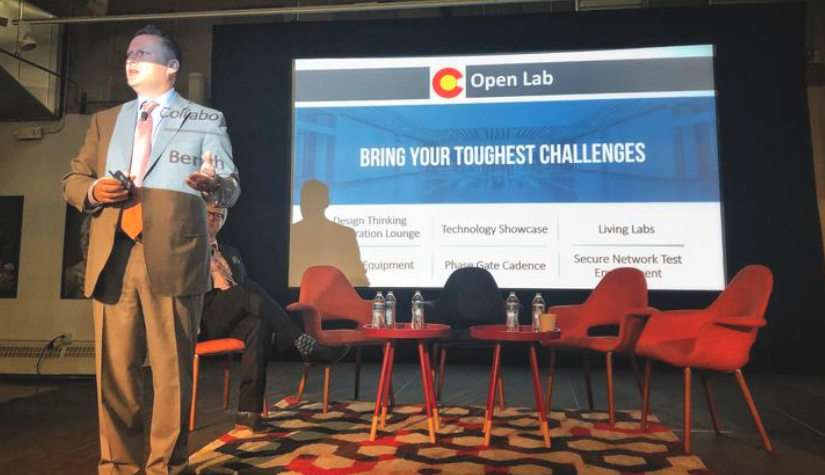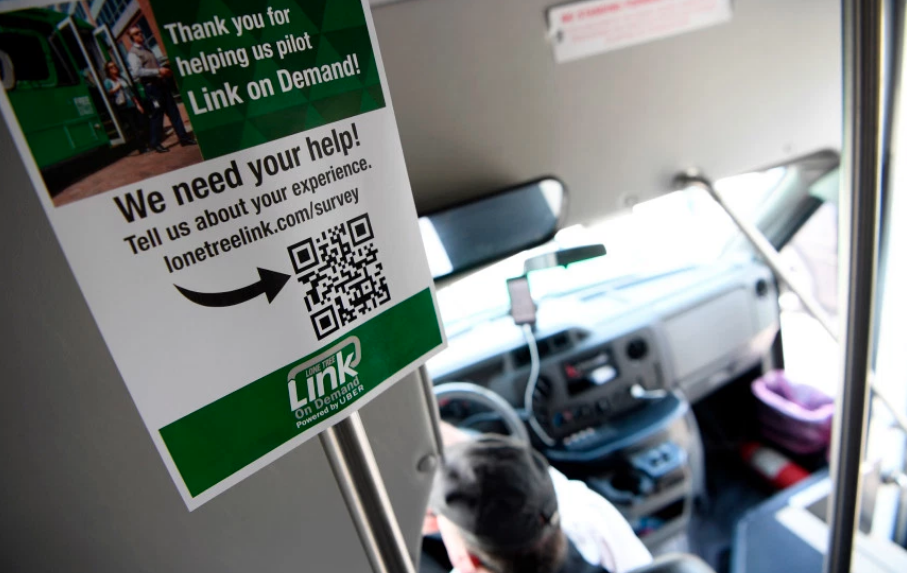September 19, 2018
by Andrew Dodson of Denver Business Journal
When Arrow Electronics joined The Colorado Smart Cities Alliance in 2017, Aiden Mitchell, the company’s vice president of global internet of things solutions, said the technology distribution giant would be an advisor for the group, pulling on its hundreds of suppliers around the globe to assist municipalities in making their cities smarter.
On Tuesday, the company took its commitment a step further, announcing the Colorado Open Lab, an innovation center where the public and private sector can development and test smart technologies before deploying them. The lab, slated to open in mid-2019, will be located inside Arrow’s headquarters in Centennial.
Mitchell made the announcement in front of hundreds of people at the inaugural Colorado Smart Cities Symposium event that was put on by the Coloroado Technology Association.
“This is about the integration of technology and helping jurisdictions meet the toughest challenges they need to meet across mobility, transportation, public safety, citizen engagement and advancement of economic development in the state,” Mitchell said.
Arrow (NYSE: ARW) employees will be on hand in the lab to assist in development and testing. All data that’s generated in the lab — using state-of-the-art bench-testing equipment — is owned by the alliance and will be used to help deploy solutions regionally.
“Problems don’t stay at jurisdictional boundaries,” said Matthew Bailey, who focuses on smart cities at Arrow. “This lab is a great place for cities to experiment as a region — sharing data and developing smart region environments together.”
The lab is also open to the private sector, especially for developers building out greenfield projects, to allow them to experiment with technology before deploying it in their buildings.
The term “smart city” technology refers to internet-connected devices and infrastructure that collects data, allowing communities to make transportation, energy, land and resource use and other aspects of life more efficient.
As urbanization continues across the globe — by 2050, 70 percent of the global population is expected to live in urban areas — the need to find more efficiencies in a condensed population becomes more important, said Frannie Matthews, president and CEO of the Colorado Technology Association.
“We are certainly seeing this trend toward urbanization in Colorado. We have 50 percent in urban areas right now,” she said.
By 2050, Colorado’s population is expected to add 3 million more people, according to the Colorado State Demography Office. That’s on top of the 5.5 million who already live here.
Some municipalities in the metro are already tinkering with smart city technology to make things, like transportation, more efficient for residents. The city of Lone Tree, for instance, is working with Greenwood Village and Centennial on a traffic signal partnership. The goal is to come up with a dynamic traffic light system that uses a model-predictive method.
The lights would be coordinated on the busiest corridors between the three communities and would use traffic data to allow commuters to travel as efficiently as possible.
Other technologies include smart street lights that can help cities save energy, infrastructure monitors that can anticipate a need for repairs before a problem turns more serious and artificial intelligence that makes emergency response more efficient.
But developing technology for the sake of deploying technology can be risky — especially for the public sector.
“Risk will set you back two to three years if you’re not careful,” said Aleta Jeffress, chief information office for the city of Aurora. “This lab will help us minimize that risk.”
This article was originally published in Denver Business Journal. Photo Credit: Denver Business Journal.




